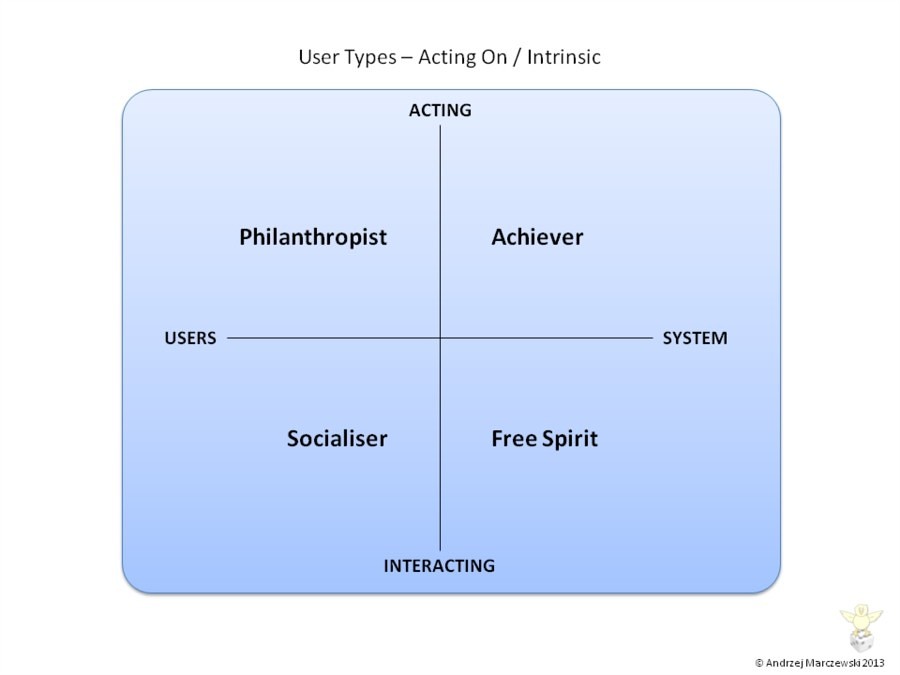This is here for interest only now – User Types 2.0 is where it is a now!!
Last week I started to explore my ideas about the different types of users there are likely to be in a gamified system. I have had loads of feedback, mostly very positive. Thanks for that. One question that keeps coming up is “what about the Player user type”? “There must be more too it!”. The answer is, of course, yes. There is a lot more.
What I explored last week was really just the intrinsically motivated types of users. Those doing things for purely self related reasons. Helping others, because it makes them feel good. Learning because they want to and enjoy the experience. Creating content that they feel will add to the greater meaning of a system.
